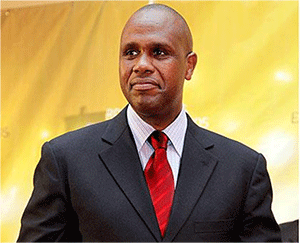RwandAir is now in the big league, having received full International Air Transport Association (IATA) Operational Safety Audit (IOSA) certificate after five months of initial approval.
IOSA is an internationally recognised and accepted evaluation system that assesses the operational management and control systems of an airline.

IATA is the trade association of the world’s airlines, representing some 250 airlines or 84 per cent of total air traffic.
It supports many aviation activities and helps formulate policy.
All IATA members are IOSA registered and must remain registered to maintain membership.
IATA Vice President for Africa, Raphael Kuuchi, officiated at the handing over of the certificate of full membership to RwandAir Chief Executive Officer (CEO), John Mirenge.
RwandAir has been linked in the past with IATA when it participated in the BSP settlement plan and part of IATA’s clearinghouse system based in Geneva. It secured the IOSA certificate in December last year, after which it sought full membership.
Kuuchi said the airline “graduated in the short space of just five months from the audit processes with flying colours, which is clearly a sign of how seriously RwandAir took the question of aviation safety.
“From the initial gap analysis over the mock audits to the final assessment, RwandAir was the first to complete the task of a group of more than a dozen airlines selected in 2013 by IATA to participate in the operational safety audit for the first time.”
Mirenge disclosed that RwandAir “is not waiting for the next prescheduled audit to commence in June 2016, but has asked to bring the date forward by three months, at which stage the e-IOSA, also known as enhanced IATA Operational Safety Audit, will be carried out, under which a number of key safety features will be strengthened even further.”
Also going underway soon, with the upcoming gap analysis, is the ISAGO audit, under which the airline’s ground operation is meticulously checked vis-a-vis global safety standards, bringing ground handling at Kigali’s International Airport also into the big league.
Alongside such accomplishments and plans, RwandAir has raised the bar internally, providing a range of added services to retain passenger loyalties.
Rwanda in 2013 announced that citizens of all African Union (AU) member states would be given a visa on arrival in Kigali, and with no transit visa required when connecting in Kigali, this measure translated into additional passenger numbers for the airline.
A growing West Africa network helped to connect travellers via Kigali into all key airports across Eastern Africa and also to Dubai and Johannesburg.
RwandAir has also confirmed cooperation with 19 other airlines on electronic ticketing, besides using Hahn Air and Heli Air Monaco.
Among the carriers are Ethiopian Airlines, South African Airways, and Kenya Airways; Brussels Airlines, KLM, and Turkish Airlines, Qatar Airways, and Etihad, and China Southern.
Following RwandAir’s membership of IATA, such cooperation are expected to be expanded to its benefit and that of passengers.
Kuuchi described RwandAir as a prime example of how a good corporate strategy and dedicated staff translate into success in the skies over Africa and beyond.
He invited RwandAir to attend the IATA general meeting in Miami and the IATA Africa meeting in Nairobi later this month.











